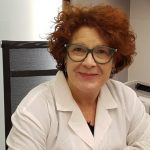
Letizia Ragusa, medical doctor specialising in Endocrinology and Clinical Pharmacology, endocrinologist and auxologist at the IRCCS Oasi Santa Maria SS in Troina (Enna) and participant in the PRAXIS project, aimed at people with Prader-Willi syndrome and their families and conducted by Fondazione ISTUD.
Rare diseases (RRDs) are those with a prevalence of less than 5 cases per 10,000 population, Prader-Willi syndrome (PWS) is a rare genetic disorder of neurodevelopment associated with a phenotype that includes hyperphagia, short stature, multiple endocrine abnormalities, hypotonia, hypogonadism, sleep disturbances, cognitive impairment, and a variety of challenging neurobehavioural disorders such as anger outbursts and anxiety, leading us to speak of a characteristic behavioural phenotype. All studies on rare diseases show a significant economic burden, both direct and indirect, and advances in technologies offer new opportunities to collect and integrate data from a wide range of sources to advance the understanding of rare diseases and support the development of new treatments.
In 2015 in America, the PWS Registry was created by the National Organization of Rare Disorders (NORD) with 1696 participants from 37 countries, with 23,550 surveys, the aim is to improve understanding of the natural history of PWS and support the development of new drug molecules useful for PWS. The registry contains for each individual person with PWS the medical history, peculiar behaviour, social information, any mental retardation, medications they take, and whether they are on a diet. All information is entered by the parent/caregiver.
For PWS, the two most critical symptoms are Obesity and Behaviour. In order to combat Obesity, in addition to diet, it would be essential to provide these persons with targeted physical activity programmes, both in childhood and adulthood, with supervised training sessions, and also with family support to facilitate their implementation in real-life contexts, enabling families to cope creatively with family life, which is currently very stressful. It is therefore crucial to focus on the needs of the family and that all health professionals, who revolve around the person with PWS, are aware of the problems of these people, in order to provide preventive guidance to families struggling with this genetic disorder.
At the moment, little or nothing exists in Italy regarding physical activity in people with PWS. What we are now beginning to study in a truly comprehensive way are the relational aspects, through Narrative Medicine, to understand the daily life, needs and resources of patients with PWS and their caregivers and to provide insights for clinical practice.
The analysis of the narratives led to an understanding of the social and relational issues of PWS concerning the diagnosis, the everyday experiences and social contexts of PWS, the implications of PWS in the work environment and the future prospects of these individuals. The narratives showed that the management of PWS affects relationships and work-life balance and that social stigma remains present. The project represented the first effort to study the impact of PWS on the disease experience in Italy through narrative medicine, considering the perspectives of patients with PWS and their caregivers.
The results indicated that a multi-professional approach is crucial to ensure adequate treatment and provided elements for its improvement. It would be desirable if single-subject training courses for each rare disease could exist in the various degree courses in order to already give the various health professionals (doctors, nurses, speech therapists, physiotherapists) the right approach to the disease.
